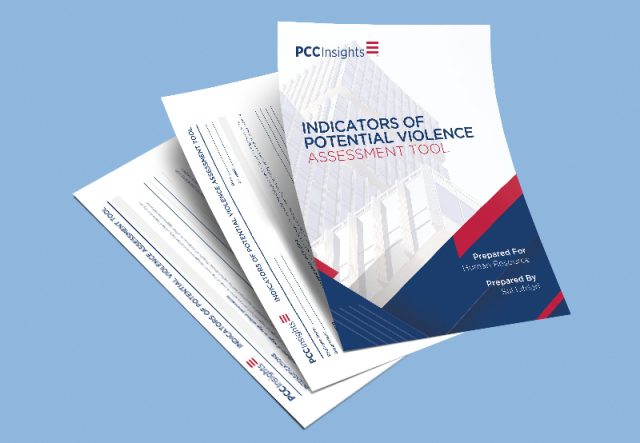
Disgruntled employees, layoffs, terminations, and over 300 active shooter cases each year can lead to significant liabilities for organizations that fail to address them.
One of the most important steps employers can take is to be proactive in identifying potential risks. This includes looking out for signs of potential violence, such as employees displaying sudden changes in behavior or attitude, or exhibiting signs of mental illness or substance abuse. Employers should also be on the lookout for warning signs that may signify an employee is in danger, such as frequent absences, or changes in job performance.
By taking these steps, employers can help create a safe and secure environment for their employees, and reduce the risk of workplace violence.
Here are 3 examples of behaviors identified by DHS and FEMA:
There are 15 additional behaviors to become familiar with. To learn more sign-up for our Free webinar on Indicators of Potential Violence in the Workplace.
Also receive a complimentary copy of our Indicators of Potential Violence Assessment Tool.

Every year, thousands of people in the United States are injured or killed due to incidents of workplace violence. In an effort to prevent such tragedies, employers should take proactive steps to create a safe and secure environment for their employees.
Employers should also create a culture of open communication and support in the workplace. This includes encouraging employees to speak up if they feel threatened or uncomfortable, and providing resources and support for those who feel unsafe. This can include providing a safe space to talk about their concerns and offering counseling or other mental health services.
In addition to creating a safe environment, employers should also have clear policies and procedures in place to address workplace violence. These should include clear definitions of acceptable and unacceptable behavior, as well as guidelines for reporting incidents. Employers should also provide training on recognizing warning signs of violence and responding appropriately.

Sal Lifrieri
An internationally recognized security and terrorism expert with a proven track record of success in all aspects of security and in providing innovative training and advisory services around the world to major entertainment, education, Fortune 500 companies and high-profile individuals. He is frequently sourced as an analyst and expert commentator on major local and national television and radio networks on security and terrorism issues.

Helen Rella
A member of Wilk Auslander’s Global Practice group, and leads the firm’s employment law practice, advising corporations, and individuals, conducting business in the U.S. and abroad. Helen’s industry experience spans media, broadcasting and entertainment; luxury retail and manufacturing; banking and finance; and the security, construction, architectural and the oil and energy sectors. Helen has an in-depth understanding of the challenges and opportunities for global clients both domestically and abroad and regularly provides commentary on labor and employment issues both on-air and in the press.
Disclaimer: Information provided during this webinar is for news purposes only and does not constitute a remedy for any of the discussed risks presented, nor should it be considered as legal or security advice. You are advised to consult with and retain proper security consulting and legal counsel before taking any planning or preventative actions. Moreover, this email and its contents may be considered attorney advertising under the rules of certain jurisdictions. The information and materials offered in this email are for general informational purposes only, do not constitute and should not be considered to be legal advice. No one should, or is entitled to, rely in any manner on any of the information in this email and parties seeking advice should consult with legal counsel familiar with their particular circumstances.

